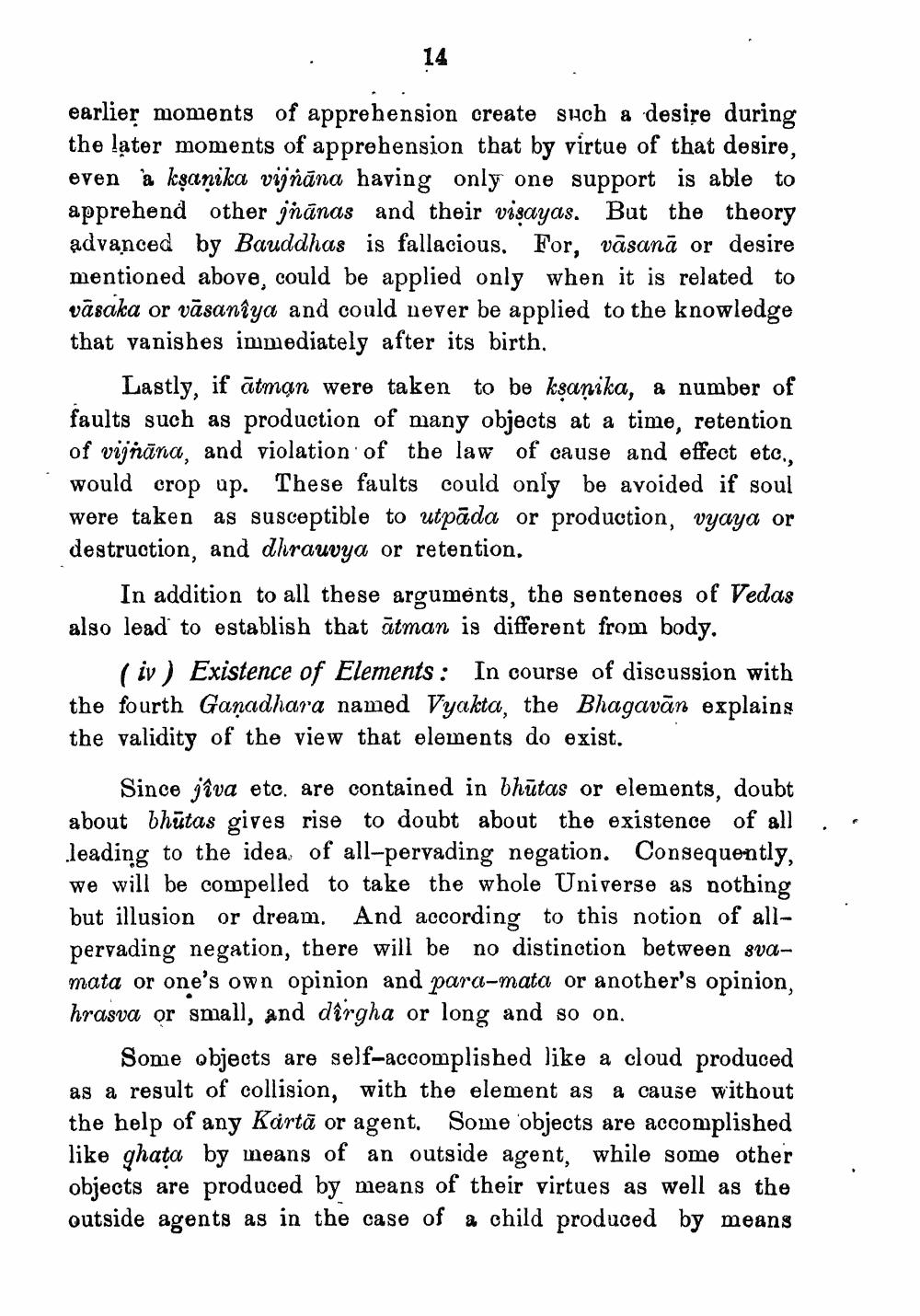________________
.
14
earlier moments of apprehension create such a desire during the later moments of apprehension that by virtue of that desire, even a kşanika vijñāna having only one support is able to apprehend other jñānas and their visayas. But the theory advanced by Bauddhas is fallacious. For, vāsanā or desire mentioned above, could be applied only when it is related to vāsaka or vāsanaya and could never be applied to the knowledge that vanishes immediately after its birth.
Lastly, if ātman were taken to be kşaņika, a number of faults such as production of many objects at a time, retention of vijñāna, and violation of the law of cause and effect etc., would crop up. These faults could only be avoided if soul were taken as susceptible to utpada or production, vyaya or destruction, and dhrauvya or retention.
In addition to all these arguments, the sentences of Vedas also lead to establish that ātman is different from body.
(iv) Existence of Elements : In course of discussion with the fourth Gañadhara named Vyakta, the Bhagavān explains the validity of the view that elements do exist.
Since jîva etc. are contained in bhūtas or elements, doubt about bhūtas gives rise to doubt about the existence of all .. leading to the idea of all-pervading negation. Consequently, we will be compelled to take the whole Universe as nothing but illusion or dream. And according to this notion of allpervading negation, there will be no distinction between svamata or one's own opinion and para-mata or another's opinion, hrasva or small, and dirgha or long and so on.
Some objects are self-accomplished like a cloud produced as a result of collision, with the element as a cause without the help of any Kartā or agent. Some objects are accomplished like ghata by means of an outside agent, while some other objects are produced by means of their virtues as well as the outside agents as in the case of a child produced by means




